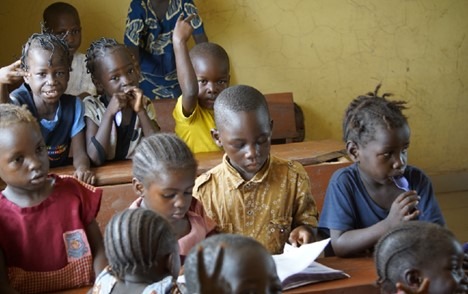NIGERIA ACHIEVES MILESTONE IN EDUCATION: 4 MILLION OUT-OF-SCHOOL CHILDREN BACK IN CLASS

In a groundbreaking achievement, the Nigerian government has successfully reintegrated over four million out-of-school children into educational institutions within just one year. This significant milestone was announced by Professor Tahir Mamman, the Minister of Education, during a media briefing dubbed ‘Transformative Journey’ to commemorate his first year in office.
Professor Mamman detailed the measures that led to this success, highlighting a strategic focus on basic education through the DOTS Policy. The DOTS framework—standing for Data Repository, Out-of-School Education, Teacher Training and Development, and Skills Acquisition—has been pivotal in addressing the educational crisis that existed when he assumed office last year.
Under his leadership, five key agencies within the Federal Ministry of Education have been instrumental in achieving this remarkable feat. Professor Mamman revealed that a total of 4,028,000 children have been enrolled in basic and Arabic literacy programs, including 200,500 learners with disabilities. The initiative is set to continue, with plans to bring 3 to 4 million more out-of-school children into the classroom annually over the next three years.
“In the past two weeks alone, over 20,000 out-of-school children have been registered in Abuja, with similar efforts underway nationwide,” Professor Mamman noted. He emphasized that children who are older than the typical school age are being enrolled in skill development programs to ensure they gain valuable competencies for their future.
The Minister also shared impressive statistics from the past year: school enrollment has surged from 30 million to 55 million learners, and more than 85,662 teaching and non-teaching staff have received training. In terms of infrastructure, the Universal Basic Education Commission (UBEC) has provided over 40,000 new facilities for basic and senior secondary education, while the Tertiary Education Trust Fund (TETFUND) has contributed more than 6,500 facilities to higher education institutions.
Scholarship programs have flourished under this new regime, with over 759,000 scholarships awarded, easing the financial burden on students and their families. Additionally, the National Education Loan Fund (NELFUND) has disbursed 3 billion naira to support students.
The Minister also addressed the processing of allowances for Nigerian scholars under the Bilateral Education Agreement (BEA) and reassured beneficiaries that payments are forthcoming. Moreover, the introduction of the Transnational Education (TNE) system is opening doors for Nigerian scholars to access world-class education at reduced costs, with increased opportunities for foreign investments in Nigeria’s education sector.
Technological advancements have been integrated into the educational system, with the adoption of artificial intelligence and other tech innovations aimed at enhancing teaching. Emphasis is being placed on technical education from the primary level up to tertiary institutions to better prepare students for the job market.
Professor Mamman highlighted the ongoing efforts to improve school safety, including the establishment of a rapid response security team, installation of CCTV systems, and enhanced fencing around schools. The curriculum is also being reviewed and updated to better cater to the needs of early learners and craft practitioners.
In conclusion, Professor Mamman expressed confidence that Nigeria’s education system is on the path to a complete transformation, driven by innovative policy designs and the unwavering support of President Bola Ahmed Tinubu.
Dr. Tanko Yusuf, the Minister of State for Education, echoed these sentiments, emphasizing that the program's core objective is to enhance access to education and improve the overall welfare of students across Nigeria.

 2 Oct, 2024
2 Oct, 2024
 14 Oct, 2024
14 Oct, 2024
 1 Oct, 2024
1 Oct, 2024